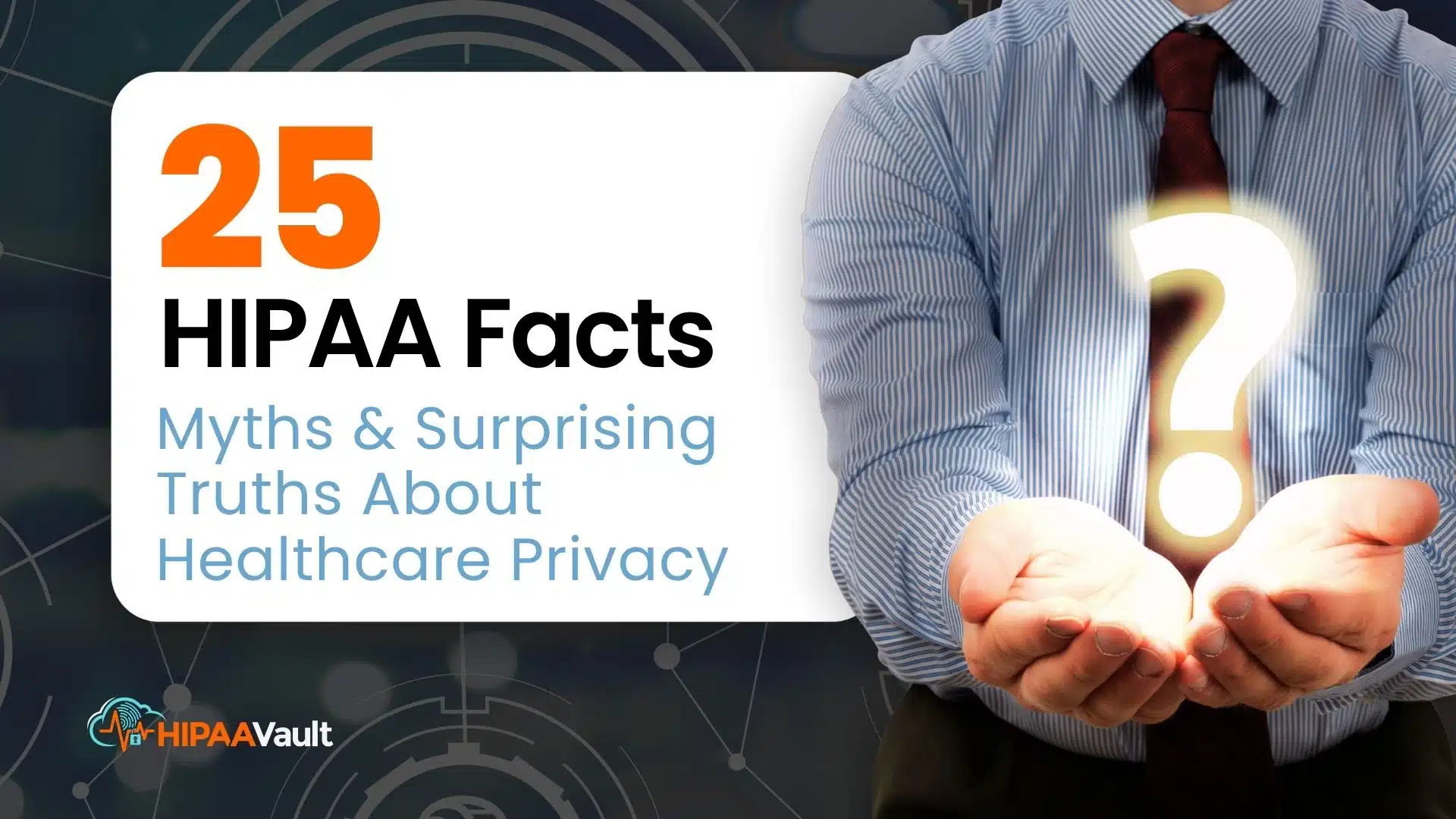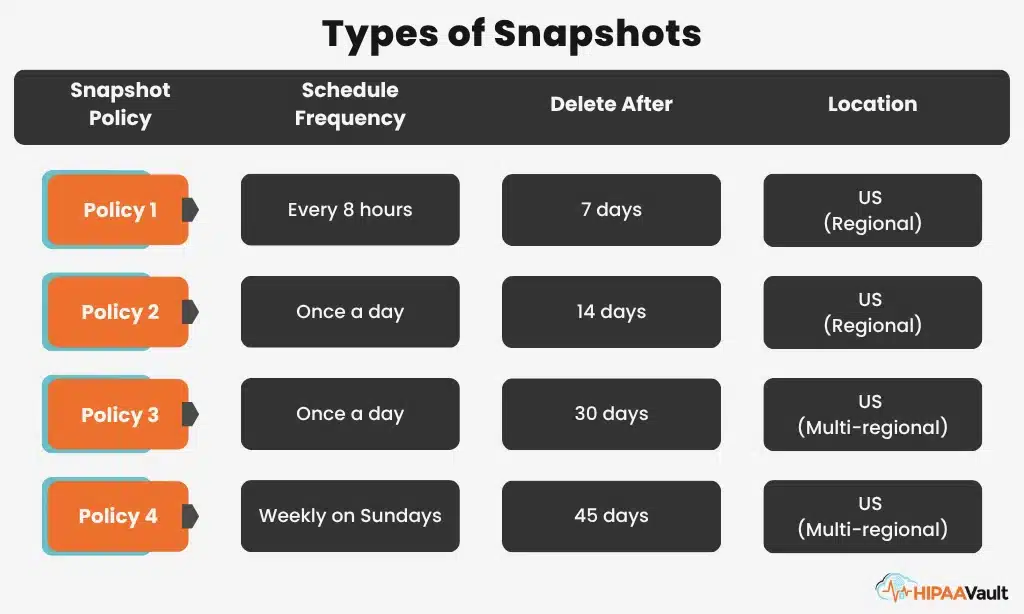Introduction
When it comes to protecting patient privacy, the Health Insurance Portability and Accountability Act (HIPAA) is one of the most recognized—yet often misunderstood—laws in healthcare. Whether you’re a provider, an administrator, or a health tech startup, understanding HIPAA’s facts and myths can help you stay compliant, protect patient data, and avoid costly violations.
In this guide, we’ll clarify the most important HIPAA facts, separate myths from truth, and highlight surprising details that even seasoned professionals may overlook.
Schedule a Consultation to assess your organization’s HIPAA compliance readiness.
What Is HIPAA?
HIPAA, the Health Insurance Portability and Accountability Act of 1996, is a U.S. federal law designed to safeguard patients’ protected health information (PHI). It establishes national standards for data privacy and security, enforced by the Department of Health and Human Services (HHS) and the Office for Civil Rights (OCR).
The law is divided into several key rules:
- Privacy Rule – Defines who may access or share health data.
- Security Rule – Ensures the confidentiality and integrity of electronic PHI (ePHI).
- Breach Notification Rule – Requires notification to affected individuals and HHS when data is exposed.
HIPAA applies only to covered entities (healthcare providers, insurers, and clearinghouses) and business associates (vendors who handle PHI). Many consumer health apps fall outside HIPAA’s scope.
Learn more from the HHS HIPAA Overview and NIST SP 800-66 Revision 2, which maps security standards to HIPAA compliance.
Review your compliance strategy with our HIPAA Compliance Checklist.
Why HIPAA Was Created
Before HIPAA, patients had limited control over their medical records, and there were no nationwide standards for handling health data. HIPAA was designed to:
- Protect the privacy of medical records.
- Improve healthcare efficiency through electronic transactions.
- Standardize data security for healthcare organizations.
- Ensure continuity of insurance coverage when changing jobs.
Nearly three decades later, HIPAA remains the cornerstone of healthcare privacy and data protection.
Learn how to protect your data with HIPAA-compliant hosting solutions that align with NIST security best practices.
10 Essential HIPAA Facts
- HIPAA fines can reach $1.5 million per year — Violations can be compounded if corrective action isn’t taken.
- HIPAA doesn’t apply to every company with health data — Fitness apps and wearables are typically exempt unless they work directly with covered entities.
- Patients always have the right to access their records — Even unpaid bills can’t prevent access under HIPAA.
- Healthcare providers can share data in emergencies — HIPAA allows disclosures to ensure patient safety.
- Employers aren’t usually bound by HIPAA — Unless they operate as a healthcare provider or insurer.
- Family members need consent to access records — With the exception of minors or emergency circumstances.
- HIPAA protects PHI—not all personal data — Only identifiable health-related information is covered.
- Both physical and digital records are protected — Paper charts and electronic systems fall under HIPAA.
- Law enforcement can access PHI with proper authority — For investigations or court orders.
- Unintentional violations are still punishable — Lack of awareness is not a defense under HIPAA.
Ensure your practice meets every standard. Schedule a HIPAA Compliance Consultation or review our HIPAA Compliance Checklist.
Customize Your HIPAA Bundle—Pick 3 and Save 15%
Don't pay for tools you don't use. Combine Hosting, Email, Fax, or Text into one affordable, managed plan.
Learn More5 Surprising HIPAA Facts
- “HIPPA” is a common misspelling — Even industry professionals often write it incorrectly.
- Patients can request corrections to their medical records — Providers must review and respond to such requests.
- Celebrity breaches have led to terminations and fines — Unauthorized access at major hospitals has resulted in criminal charges.
- Psychotherapy notes have special protection — They require additional safeguards under HIPAA.
- HIPAA fines fund privacy education — Collected penalties support future compliance training.
Common HIPAA Myths vs. Facts
| Myth | Fact |
| All health data is covered under HIPAA. | Only PHI from covered entities and business associates is protected. |
| HIPAA prevents you from sharing your own health information. | Individuals are free to disclose their own information. |
| Every health-related app follows HIPAA. | Most do not, unless integrated with a covered entity. |
| You must sign a form for any disclosure. | Routine uses, such as billing or emergency care, do not require consent. |
| Only doctors must follow HIPAA. | Nurses, billing teams, insurers, and IT vendors must comply too. |
For official clarifications, visit the HHS HIPAA FAQ Tool or our HIPAA Security Rule Guide.
What Happens When HIPAA Is Violated
Violating HIPAA can have severe financial and legal consequences.
Civil Penalties:
$100 to $50,000 per violation, up to $1.5 million annually.
Criminal Penalties:
Fines up to $250,000 and imprisonment for up to 10 years.
Example Case:
Employees at Cedars-Sinai Hospital were terminated after accessing patient medical records without authorization—including celebrity cases that led to investigations and fines.
Protecting patient data requires strong technical safeguards and regular staff training.
Schedule a HIPAA Consultation or explore HIPAA Training Tools for 2025 to identify vulnerabilities before they become violations.
HIPAA FAQs
Conclusion
Understanding HIPAA goes beyond compliance—it builds trust. Whether you manage patient records, develop healthcare technology, or oversee a clinic, knowing the facts and debunking common myths helps prevent violations and strengthen data protection.
To ensure your organization meets every HIPAA standard, schedule a consultation with HIPAA Vault. Our experts provide secure hosting, compliance support, and training tailored to your specific needs.








